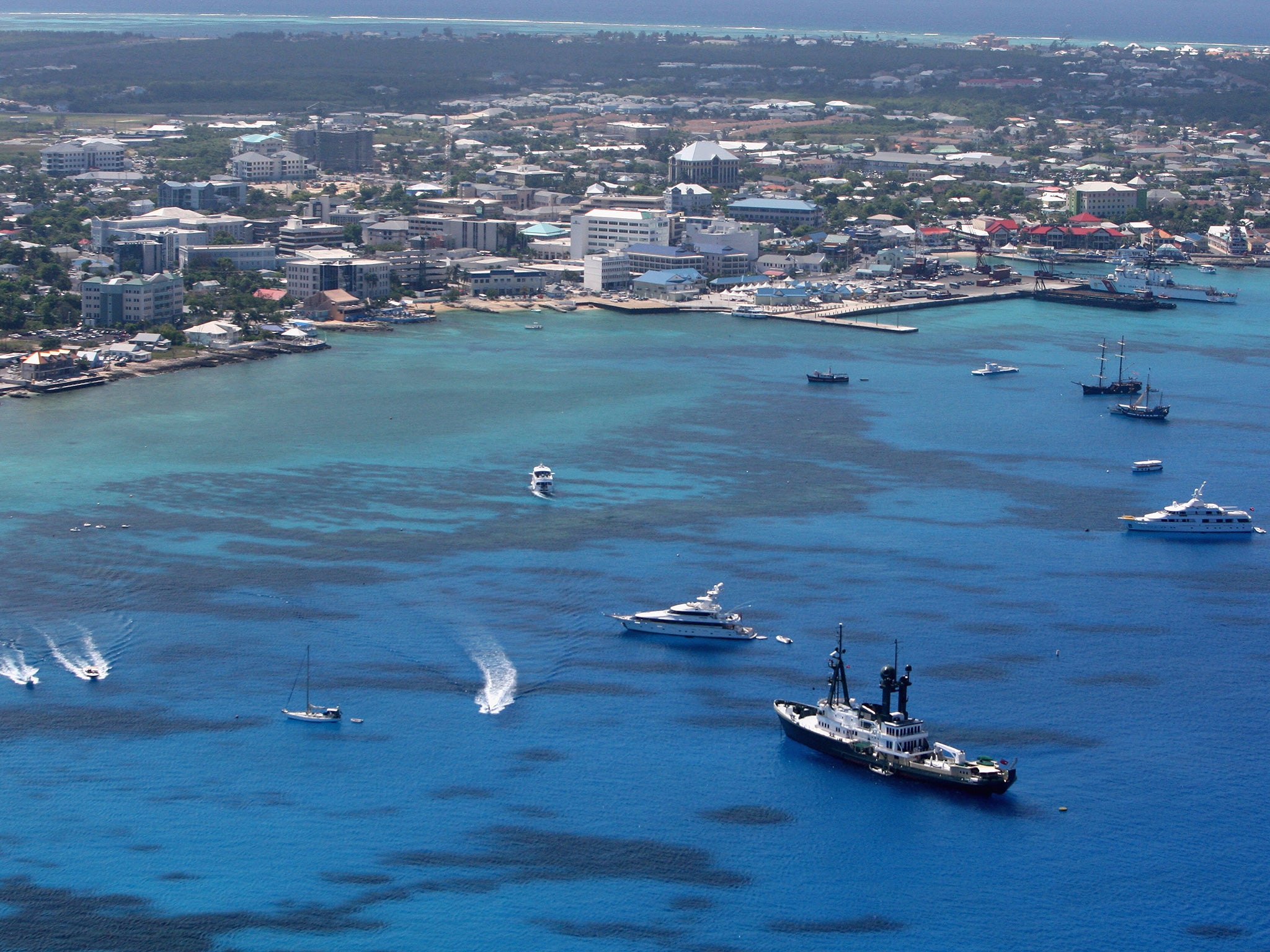UK ministers humiliated after Cayman and BVI leaders repeatedly ignore requests for meetings
Exclusive: Campaigners accuse Government of 'pussyfooting' around the issue, and claim the 'meek' and 'softly-softly' approach is not working

Your support helps us to tell the story
From reproductive rights to climate change to Big Tech, The Independent is on the ground when the story is developing. Whether it's investigating the financials of Elon Musk's pro-Trump PAC or producing our latest documentary, 'The A Word', which shines a light on the American women fighting for reproductive rights, we know how important it is to parse out the facts from the messaging.
At such a critical moment in US history, we need reporters on the ground. Your donation allows us to keep sending journalists to speak to both sides of the story.
The Independent is trusted by Americans across the entire political spectrum. And unlike many other quality news outlets, we choose not to lock Americans out of our reporting and analysis with paywalls. We believe quality journalism should be available to everyone, paid for by those who can afford it.
Your support makes all the difference.The governments of two notorious tax havens have repeatedly ignored UK ministers’ requests to meet about cracking down on corporate tax avoidance of the kind detailed on the so-called Panama Papers, The Independent can reveal.
Official letters obtained using freedom of information rules show humiliated ministers “disappointed” at being stood-up after “numerous attempts” to meet with the premiers of the British Virgin Island and Cayman Islands.
Campaigners reacted to the letters by berating the Government’s “meek” and “softly-softly” approach towards the havens, while Labour leader Jeremy Corbyn has accused the Government of “pussyfooting” around the issue.
The revelation comes after a massive data leak from Panama-based law firm Mossack Fonseca which shows it registered more than 100,000 secret firms to the British Virgin Islands, a UK overseas territory which featured on an EU list of tax havens “blacklisted” by at least 10 member states. The Prime Minister David Cameron became embroiled in the scandal after he admitted on Thursday to profiting from selling shares in his father's company Blairmore Holdings, an offshore fund set up in Panama in the 1980s.
The letters, sent in March 2015, show that ministers were expecting to meet with the premiers of the BVI and Cayman Islands when they visited London last year, but that the meetings did not take place.
“As discussed on the telephone on 24 March, we were due to meet in London yesterday with the other Overseas Territories to continue our dialogue about international standards on tackling all forms of illicit finance, and to focus on how we can work together to ensure companies cannot hide their beneficial ownership from law enforcement and tax authorities,” both the letters say.
They continue: “It is therefore deeply disappointing, despite numerous attempts, that we have not been able to meet collectively to discuss a way forward on effective implementation of the G20 Principles on beneficial ownership, despite our shared public commitment to do so.
“Meanwhile, the global debate on the importance of raising international standards to tackle money laundering, tax evasion, illicit finance and corruption has intensified.”
The ministers go on to say that draft proposals by the two governments on the issue of beneficial ownership “do not go far enough”, though they both praise other measures taken on tax evasion since the 2013 Loch Erne summit.
The two letters are signed by David Gauke, a Treasury minister, and James Dudderidge, the Foreign Office minister responsible for Overseas Territories and the Caribbean.
The correspondence appears to have been ignored by the two countries’ premiers; The Independent asked the Government to disclose any response received but none was produced.
The Independent also contacted the Treasury for further comment and to ask whether Treasury ministers had eventually secured any such meeting to discuss the issue. No response from the department has been received at the time of publication.
The Treasury passed the inquiry to the Foreign Office, which said the issue had been discussed at the December 2015 British Overseas Territories joint ministerial council. As noted in the letters, the issue had already previously been raised at the 2014 joint ministerial council.
A read-out of the 2015 council said that any progress on implementation of any measures “would be kept under continuous and close review”.
Both the Cayman Islands and the British Virgin Islands are British Overseas Territories and receive defence and foreign affairs support from the UK.
They are not independent and retain the Queen as head of state, but are governed autonomously.
Mr Corbyn has called for UK overseas territories acting as tax havens to be taken under direct control of the British government if they refused to comply.
At time of writing, 125,000 people had signed an online petition calling on David Cameron to shut down all British-owned tax havens.
Nick Dearden, director of Global Justice Now, a charity which campaigns against poverty, told the Independent the Government was not taking a strong enough approach.
“It's not surprising that the Government should take such a meek and 'softly softly' approach to the scandal of tax avoidance when the Panama Papers have revealed the extent to which politicians themselves are involved in squirreling away their own private fortunes, safe from public scrutiny,” he said.
“There's a marked contrast between how the Government will take such a meek and polite approach when dealing with the financial affairs of the 1 per cent, but then be so draconian in the way it imposes fiscal hardship on some of the most vulnerable sections of society.
“We need politicians who will take a rigorous and effective approach to the problem, rather than tiptoe around it for fear of upsetting their friends or relations who are benefitting from such schemes.”
Join our commenting forum
Join thought-provoking conversations, follow other Independent readers and see their replies
Comments